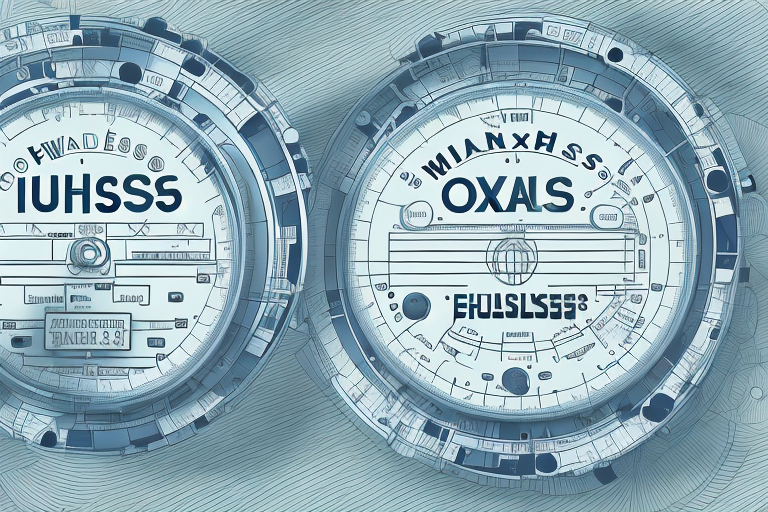Fairbanks Scales vs Ohaus D51XW: Comprehensive Comparison
In the world of digital scales, two brands often go head-to-head in terms of popularity and quality: Fairbanks Scales and Ohaus D51XW. When choosing the right digital scale for your needs, it's essential to understand the features and benefits of each product, as well as their potential drawbacks. This article compares Fairbanks Scales and Ohaus D51XW based on their accuracy, durability, and price range to help you decide which one is better suited for your personal or commercial use.
Introduction to Digital Scales
Digital scales have evolved significantly since their introduction in the early 1970s. Today, they are an indispensable tool for businesses and individuals alike, enhancing accuracy and efficiency across various settings. Fairbanks Scales and Ohaus D51XW are two of the most reputable digital scale brands on the market, each offering a range of features that appeal to potential buyers. But how do they compare? Let's delve deeper.
Firstly, let's examine Fairbanks Scales. Established in 1901, Fairbanks Scales has a long-standing reputation for producing high-quality, durable scales designed to withstand heavy use. Known for their accuracy and precision, Fairbanks Scales are a preferred choice in industries such as agriculture, manufacturing, and transportation.
Conversely, Ohaus D51XW is a newer brand that has rapidly gained traction in the digital scale market. One of the standout features of Ohaus D51XW scales is their user-friendly interface, making them easy to operate even for those unfamiliar with digital scales. Additionally, these scales are renowned for their versatility, with models available for a wide range of applications, from laboratory use to industrial weighing.
The History of Digital Scales
Digital scales originated from mechanical scales, which have been used for centuries to measure everything from food ingredients to precious metals. The first electronic scale was invented in the early 1970s, and since then, digital scales have become more accurate, reliable, and user-friendly. Today, they come in various sizes and capacities, suitable for tasks ranging from weighing small jewelry items to large industrial goods.
One major advantage of digital scales over mechanical ones is their ability to provide precise measurements, often accurate to the nearest decimal point. This precision is crucial in fields like scientific research and pharmaceutical manufacturing.
Another benefit is their ease of use. Many digital scales feature tare functions, allowing users to subtract the weight of containers or other objects from the total measured weight. Additionally, large, clear displays make them accessible to users with visual impairments.
Understanding Fairbanks Scales
Fairbanks Scales is a leading manufacturer of industrial weighing equipment, with a history spanning over 120 years. Their digital scales are celebrated for their accuracy, durability, and ease of use, available in a range of sizes and capacities to meet diverse needs. Constructed with high-quality materials and advanced technology, Fairbanks Scales are designed to endure harsh conditions and heavy usage.
Beyond digital scales, Fairbanks Scales offers a variety of weighing solutions, including bench scales, floor scales, and truck scales. They also provide custom solutions tailored to specific industries such as agriculture, mining, and transportation. Committed to customer satisfaction, Fairbanks Scales offers comprehensive services, including installation, calibration, and maintenance. With their extensive expertise, Fairbanks Scales is a trusted partner for businesses across various sectors.
Understanding the Ohaus D51XW
Ohaus D51XW is a brand of digital scales designed for commercial use across a wide range of industries. Renowned for their precision, reliability, and user-friendly interface, Ohaus D51XW scales come in various sizes and capacities to accommodate different needs. Built with durable materials and advanced technology, these scales deliver accurate and repeatable measurements even in demanding environments.
A key feature of Ohaus D51XW scales is their multifunctionality, allowing for tasks such as checkweighing, counting, and percent weighing. This versatility makes them suitable for applications like weighing ingredients in bakeries or counting parts in manufacturing facilities. Additionally, their bright, easy-to-read displays and intuitive controls ensure simple operation, even for users with limited experience.
Comparison of Fairbanks Scales and Ohaus D51XW
Accuracy
Both Fairbanks Scales and Ohaus D51XW are renowned for their accuracy and reliability, utilizing advanced technology to ensure precise and consistent measurements. However, some users report that Fairbanks Scales offer slightly higher accuracy, especially when measuring very small or delicate items.
The operating environment also plays a role in their accuracy. Fairbanks Scales perform exceptionally well in harsh environments with extreme temperatures or high dust and moisture levels, making them ideal for industrial settings. In contrast, Ohaus D51XW scales are optimized for controlled environments like laboratories or clean rooms, where factors such as temperature and humidity are tightly regulated.
Both brands offer features that enhance accuracy, such as built-in calibration tools and automatic adjustment capabilities. The type of load cell used also impacts accuracy, with some models featuring more sensitive or precise load cells to ensure dependable measurements.
Durability
Durability is a significant factor when choosing between Fairbanks Scales and Ohaus D51XW. Fairbanks Scales are constructed with heavy-duty materials, designed to withstand harsh conditions and continuous heavy use, making them suitable for rugged industrial environments.
Ohaus D51XW scales, while also durable, emphasize portability and versatility. Features like overload protection and shock-absorbing feet enhance their ability to endure rough handling, making them ideal for environments where mobility is essential.
Maintenance requirements differ between the two. Fairbanks Scales require regular maintenance, including lubrication and calibration checks, to ensure optimal performance. On the other hand, Ohaus D51XW scales are designed for low maintenance, featuring components like sealed keypads and automatic protection mechanisms that reduce the need for frequent repairs.
Price Range
Both Fairbanks Scales and Ohaus D51XW are premium brands, and their products are priced accordingly. Generally, Fairbanks Scales tend to be slightly more expensive than Ohaus D51XW, especially for larger models. However, both brands offer a range of products at various price points, allowing buyers to find scales that fit their specific budget and requirements.
When evaluating price, it's also important to consider the value offered by each brand in terms of accuracy and durability. Fairbanks Scales' higher price often reflects their superior accuracy and robust build quality, which is crucial for industries requiring precise measurements. Ohaus D51XW provides a balance between cost and functionality, offering reliable performance at a more accessible price point.
Ultimately, the decision between Fairbanks Scales and Ohaus D51XW will depend on your specific needs, budget, and the importance of factors like accuracy and durability in your intended application.
Use Cases: Commercial and Personal
Commercial Use
Both Fairbanks Scales and Ohaus D51XW are well-suited for commercial use, offering features that cater to various business needs. If accuracy is your top priority, Fairbanks Scales may be the better choice due to their exceptional precision and reliability. This makes them ideal for industries such as pharmaceuticals, food production, and manufacturing where precise measurements are critical.
If durability and a user-friendly interface are more important, Ohaus D51XW scales might be the preferable option. Their robust construction and multifunctional capabilities make them suitable for environments that require both portability and reliable performance.
Ultimately, the best choice will depend on the specific requirements of your business, including the type of materials you are weighing, the conditions in which the scale will be used, and your budget constraints.
Personal Use
For personal use, both Fairbanks Scales and Ohaus D51XW offer reliable options, but the best choice depends on your specific needs:
- Cooking or Baking: Both brands are suitable, but Fairbanks Scales may offer slightly higher accuracy for measuring small ingredient quantities.
- Jewelry or Small Item Weighing: Fairbanks Scales are preferable due to their precision and ability to measure very light weights accurately.
- General Household Use: Ohaus D51XW scales provide a versatile and user-friendly option for a variety of everyday weighing tasks.
Consider the specific applications you require and choose the scale that best meets those needs in terms of accuracy, durability, and ease of use.
Customer Reviews of Fairbanks Scales and Ohaus D51XW
Both Fairbanks Scales and Ohaus D51XW have garnered positive reviews from customers, highlighting their accuracy, durability, and ease of use. Users appreciate the robust build quality of Fairbanks Scales and the intuitive interfaces of Ohaus D51XW scales. However, some customers have reported issues with calibration consistency in Fairbanks Scales and occasional software glitches in Ohaus D51XW models.
Overall, the feedback indicates that both brands deliver high-quality products, but potential buyers should consider these reported issues when making their decision.
Pros and Cons of Fairbanks Scales and Ohaus D51XW
When deciding between Fairbanks Scales and Ohaus D51XW, it's important to weigh the advantages and disadvantages of each:
- Fairbanks Scales
- Pros: High precision, exceptional durability, and high-quality construction.
- Cons: Relatively high price point and occasional calibration challenges.
- Ohaus D51XW
- Pros: Durable with features like overload protection, user-friendly interface, and versatile functionality.
- Cons: Slightly lower accuracy compared to Fairbanks Scales and potential software issues.
Consider these factors in relation to your specific needs to determine which scale offers the best value for your situation.
Tips for Maintaining Your Digital Scale at Home or in Your Business
- Keep It Clean: Regularly wipe down the scale with a dry, soft cloth to remove dust and debris.
- Dry and Safe Environment: Ensure the scale is placed in a dry area to prevent moisture damage.
- Regular Calibration: Periodically calibrate your scale according to the manufacturer's instructions to maintain accuracy.
- Avoid Overloading: Do not exceed the scale's maximum capacity to prevent damage and ensure accurate measurements.
- Handle with Care: Avoid dropping or rough handling to maintain the integrity of the scale's components.
- Software Updates: For scales with digital interfaces, ensure that the firmware is up-to-date to benefit from the latest features and fixes.
Following these maintenance practices will help keep your digital scale in optimal condition, ensuring reliable performance for years to come.
Conclusion: Which Digital Scale is Right for You - Fairbanks Scales or Ohaus D51XW?
Choosing between Fairbanks Scales and Ohaus D51XW ultimately depends on your specific needs and preferences. If accuracy is paramount, Fairbanks Scales may be the better option due to their superior precision and durability. On the other hand, if you prioritize durability and a user-friendly interface, Ohaus D51XW scales could be the ideal choice.
Both brands offer a range of products at different price points, allowing you to find a scale that fits your budget and requirements. Whichever scale you choose, ensure that you maintain it properly to guarantee accurate and reliable measurements over many years of use.




















